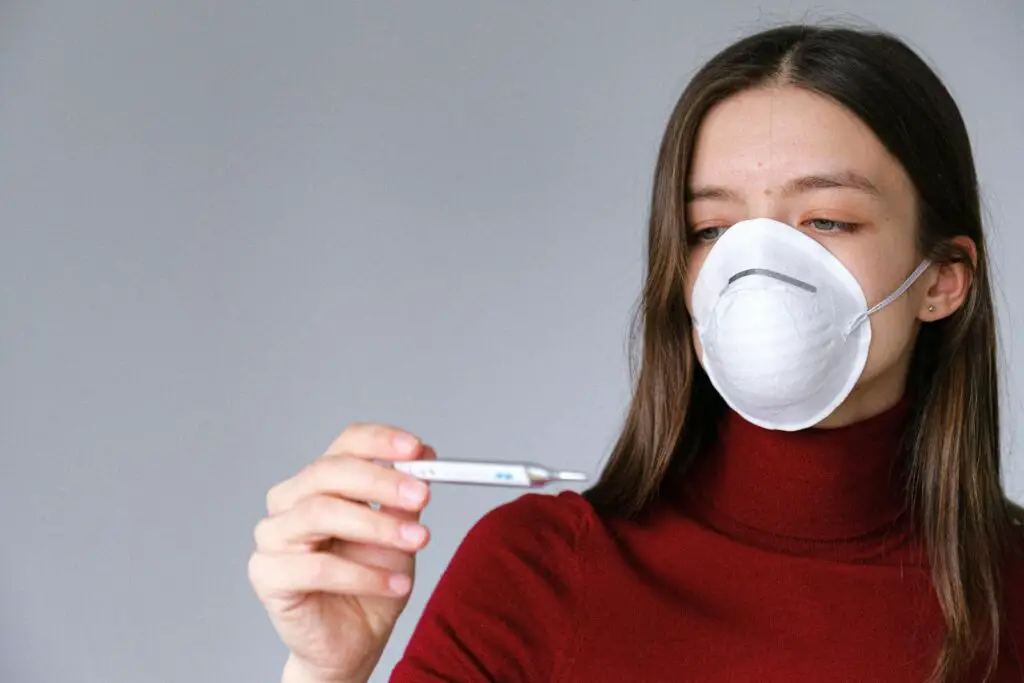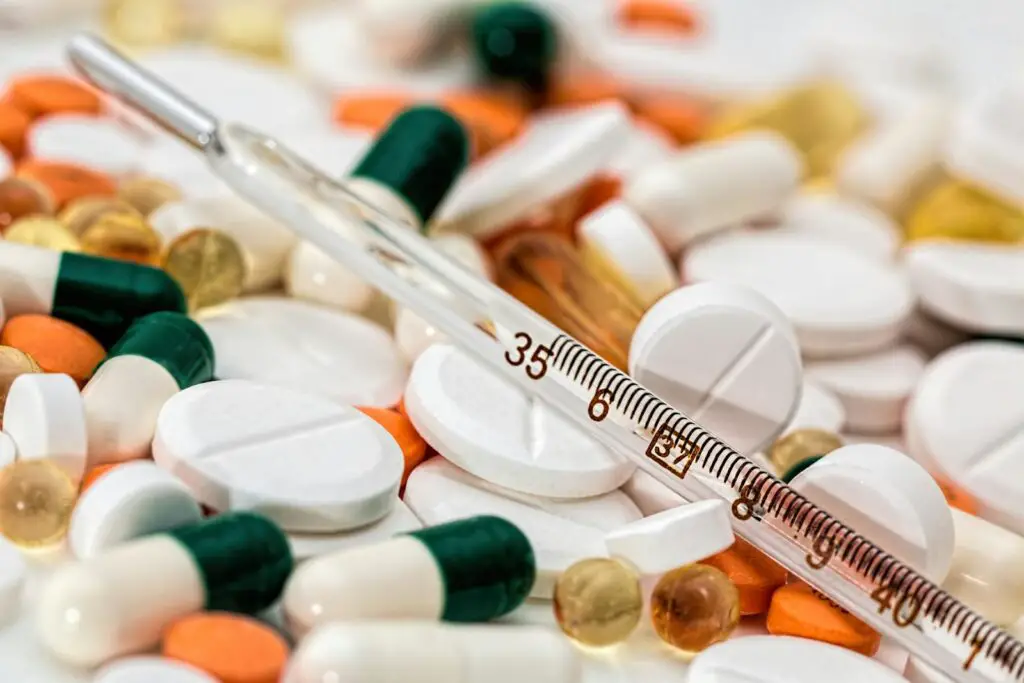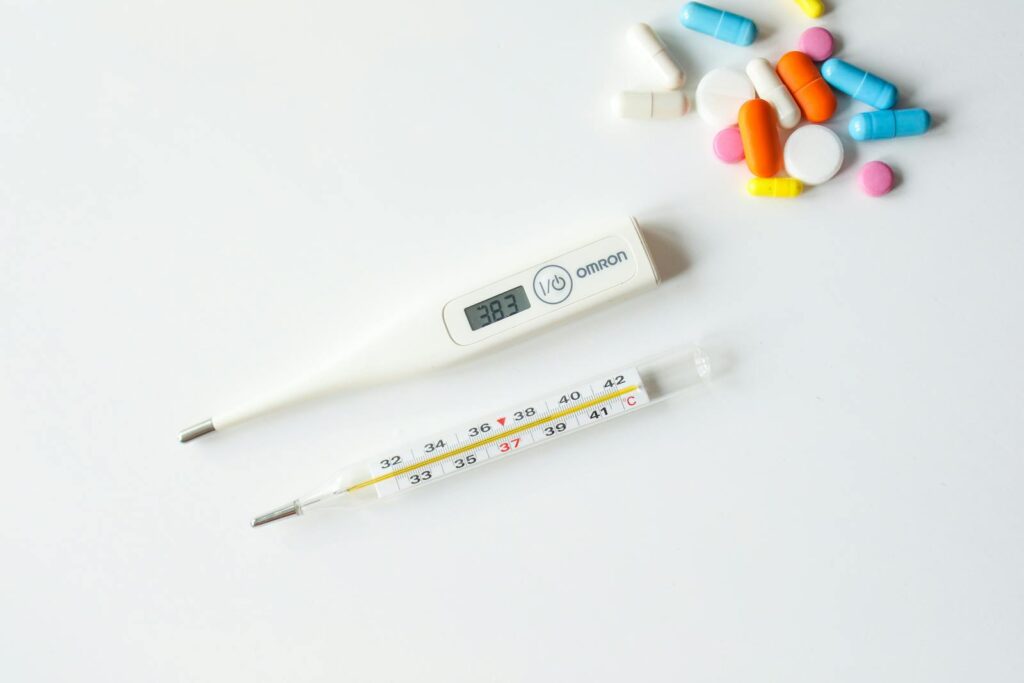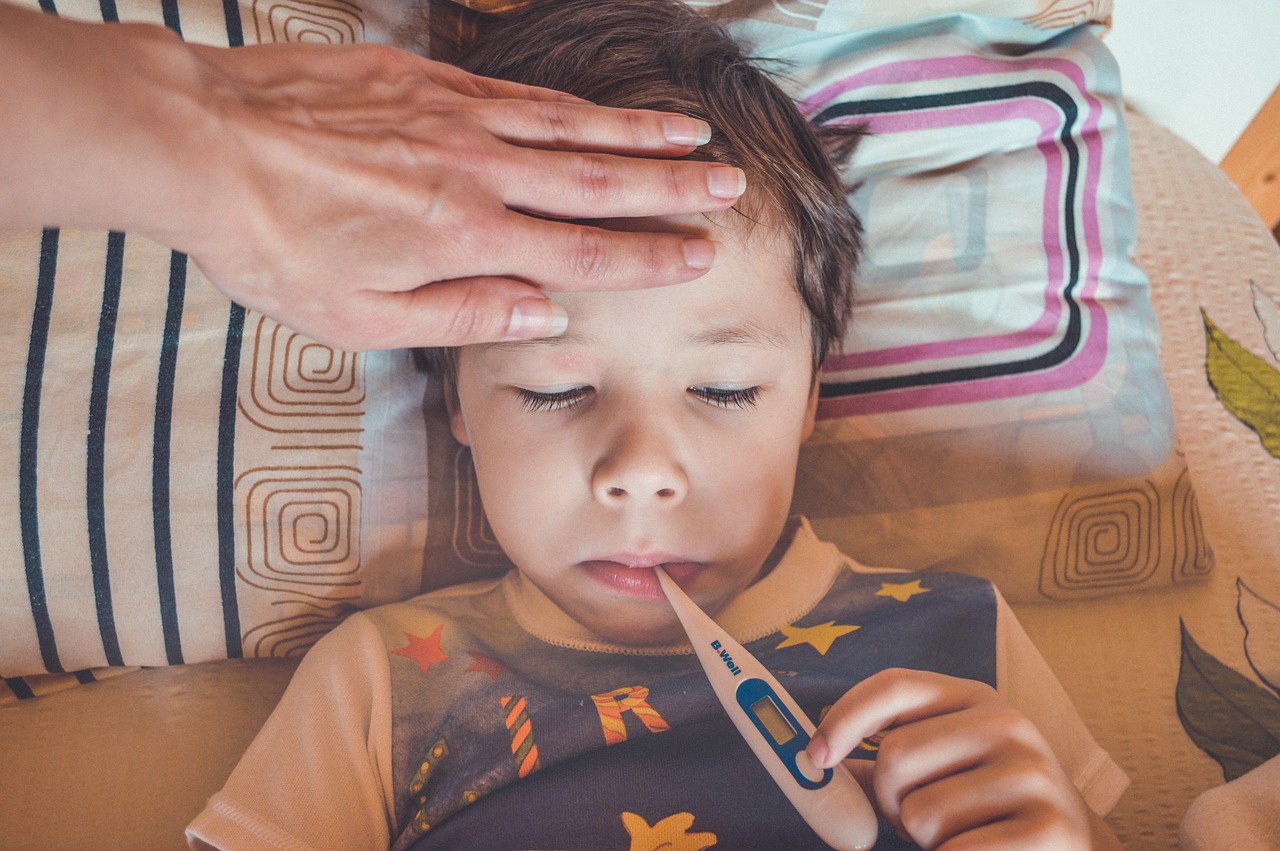Truthfully, traveling is one of those joys in life where new experiences, cultures, and lifetime memories are built. It is at this juncture, especially if one comes down with a fever, that the bubbly excitement quickly fizzles out. Being sick away from home can be a lot different, as it largely calls for preparedness and flexibility.
The following will give a full rundown on how to handle fever while traveling. Practical tips have been supported by insights from our combined team.

Prevention is Key: Prepare Before You Go
Probably the best way to manage fever while travelling is to avoid it in the first place. Before departure ensure all vaccinations you may need are current, in particular for travel to countries where infectious diseases are common. A travel clinic is also a very useful source of destination-specific advice and recommendations.
In addition to vaccinations, pack a fully prepared first-aid kit. This would include over-the-counter fever reducers such as ibuprofen or acetaminophen, a digital thermometer, electrolyte powders, and any other prescription medication that may be required by you. If going into a remote area, antibiotics, upon consultation with your provider, may be packed in your kit.
- Pro Tip: Set yourself up with a healthy immune system, from a few weeks prior to your trip on, by sleeping a lot, eating right, and drinking plenty of water. Traveling is remarkably exhausting, so you’ll want to embark on your journey when feeling the best.
Knowing the Early Signs
The earlier one can catch a fever, the better it is to deal with. Sudden chills, body ache, headaches, and generalized fatigue may mark the inception of a fever. You might feel that your body temperature is rising above normal whenever you touch your skin.
When these are present, one must act immediately. First, the temperature must be measured using a thermometer to confirm whether or not there is fever. In case at that very moment the person does not have a thermometer, then it would have to be solely by the body sensations.
Is one sweating more than normal? One is feeling hotter compared with others? These can also be indicative of fever.
Why it’s important: Early detection of fever means you’ll be able to initiate an early treatment, and that will prevent your condition from worsening, besides offering you complete recovery much faster.

Hydration: Cornerstone in the Management of Fever
With fever comes increased fluid loss because of excessive sweating. This will eventually lead to dehydration, and apart from worsening the symptoms of fever, this may make you feel particularly badly. Probably one of the easiest and most effective ways to manage fever is to stay hydrated.
- Drink plenty of water. Try to drink water in small amounts often rather than a lot at once. Your body will be replenished without your system being overwhelmed.
- Include Electrolytes: With the presence of other symptoms such as diarrhea or vomiting, one should add electrolytes to their drinks. These could be sport drinks, oral rehydration solutions, or even coconut water that will aid the body in regaining lost electrolytes and retaining its balance.
- Local Options: When traveling in countries where safe bottled water is not consistently available, ensure a water purification method, such as portable water filters or water purification tablets, are available.
Rest and Recovery: The Importance of Slowing Down
Traveling has that urge to do a catch-up, but little rest is needed by the body to fight off the infection causing the fever. Rest, in fact, is an important part of recuperation, and it should not be deprived of its rightful due.
Never be afraid to cancel or reschedule activities. One’s health should always be a priority. Much about the travel experiences can always be delayed or changed according to the needs of recovery.
That is a hotel room, an intimate B&B, or at least just a green oasis in the park-a place where you go and relax, allowing your body to recover. Keep the room well-ventilated and cool.
Rest as much as possible. Besides sleeping, it is good to engage in other non-fatiguing activities like reading or listening to soft music.
Rest does not only mean sleeping. It also involves avoiding stress, thereby letting the body channel its energies to recover rather than wasting its time on other activities.
Nutrition: Fuel Your Recovery
Nutritional intake may mean the whole difference if you have a fever. Your appetite might not be there, but nutrition is what your body basically needs to combat the infection and regain strength.
- Eat Light yet Nutritious Meals
- Include Immune-Boosting Food
- Avoid Heavy Foods

Personal Experience:
When I was feverish in Peru, all I wanted was the local “Aguadito,” a soothing chicken and cilantro soup. Light, yet nourishing, it seemed to give me just the boost I needed to recover. The local ingredients-used for their healing properties-made me realize a very important thing: eating well, even when sick.
Stay Cool, But Not Too Cold
It is very important to maintain body temperature in case one has fever. You should keep cool, but without extreme measures, as it may bring more harm than good.
You can put a wet cloth over the forehead, neck, and wrists as a method for cooling. This may be comforting to you and can help bring your body temperature down.
The temptation to cold showers and sitting in front of an air conditioner as much as one may, lukewarm showers and comfortable room temperatures are advisable. Too much cold will make the body shiver; this might raise the temperature of the body.

Wear light, loose clothing to allow the body to remain cool, and if you are chilly wear a blanket-but not bundled up-so you do not become hot. If you live in a hot climate, spend as much time as you can under shade or indoors when the sun is at its peak. On the other hand, if you are in a cold climate or environment, take the time to make sure you remain warm without overheating.
Medication: Know What to Take and When
Over-the-counter medication may just be the best friend for fever management. However, it always makes sense to make use of them judiciously and know exactly when you really need them.
The most common ones include fever reducers: Ibuprofen and acetaminophen help lower the fever and other associated symptoms like headache and muscle ache. Keep them in your travel kit and ensure you take the right dosage accordingly.
- Prescription Medications: If you are taking any medications currently, it is a good idea to check with your doctor prior to your trip about how they may interact with fever-reducers. It is also a good idea to carry a copy of your prescription in case you need to refill them overseas.
- Avoid overmedication: avoid the tendency of taking medications unless absolutely necessary. Sometimes, the fever is mild and one may be feeling fine, so best allow the fever to take its course. Take medications for comfort, not in trying to reduce the fever completely since the body requires this naturally occurring defense mechanism.
- Local pharmacies: Most local pharmacies will be able to replace supplies if you have run out, but beware of local brands and always check what the active ingredient is.
Stay Connected – Don’t Isolate Yourself
When you’re sick-especially in a foreign country-it’s easy to feel isolated. Staying connected with others can be comforting and provide you with the support you need.
Keep them Informed Back Home: If your family or friends are back home, let them be informed about your condition. Sometimes, talking to a person with a familiar voice may be soothing and reassuring.
When to Seek Medical Attention
Most fevers can be treated at home, but sometimes you may need to visit a medical professional.
Warning Signs: Whenever the fever is high-103°F or 39.4°C-and/or lasts for more than three days, it is the best time for you to go and consult your doctor. Other warning signs of other diseases are labored breathing, pains in the chest, severe headache, rash, or confusion.
How Our Team Came Up with These Ideas
Today’s guidelines are informed by what our combined team has learned. Be it fevers to other, at times life-threatening conditions, years of travelling have seen a number of health afflictions. We learned from each one of these experiences: preparation, adaptability, and self-care.

From the busiest of cities to the most obscure village, through a gamut of climates and health risks, one cardinal rule learned along was that the trick in coping with sicknesses abroad is found in a combination of prevention, quick action, and knowing when to look for help.
These are the tips to put together through some experience and knowledge that we have faced, from fevers in tropical rainforests to urban sprawls and arid deserts-all very different in approach. Based on the common experience, we have worked out a comprehensive guide to, as it were, help other voyagers against the vicissitudes of being sick on the road.
Conclusion
Traveling with a fever is never ideal, but it doesn’t have to ruin your trip. Being prepared, recognizing the symptoms early on, keeping hydrated, resting, and asking for help when necessary are just a few ways to manage a fever effectively for getting back to an adventure. Remember, health comes first-so listen to your body and don’t be afraid to change your plans of action when necessary. Safe travels!


Leave a Reply